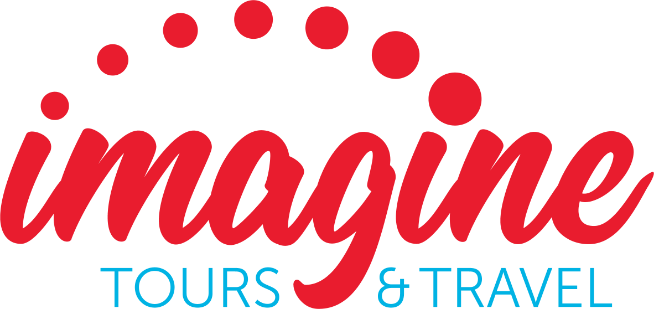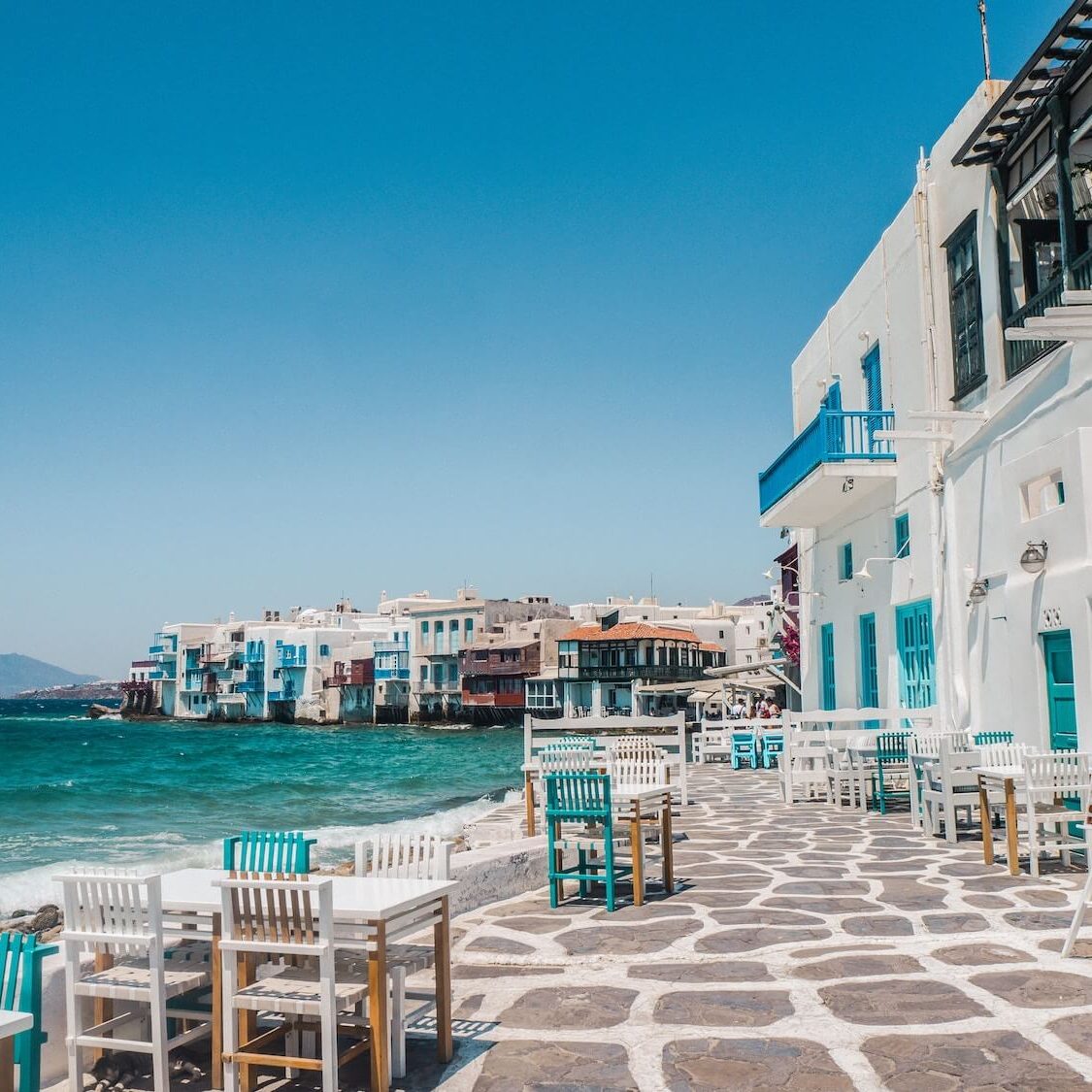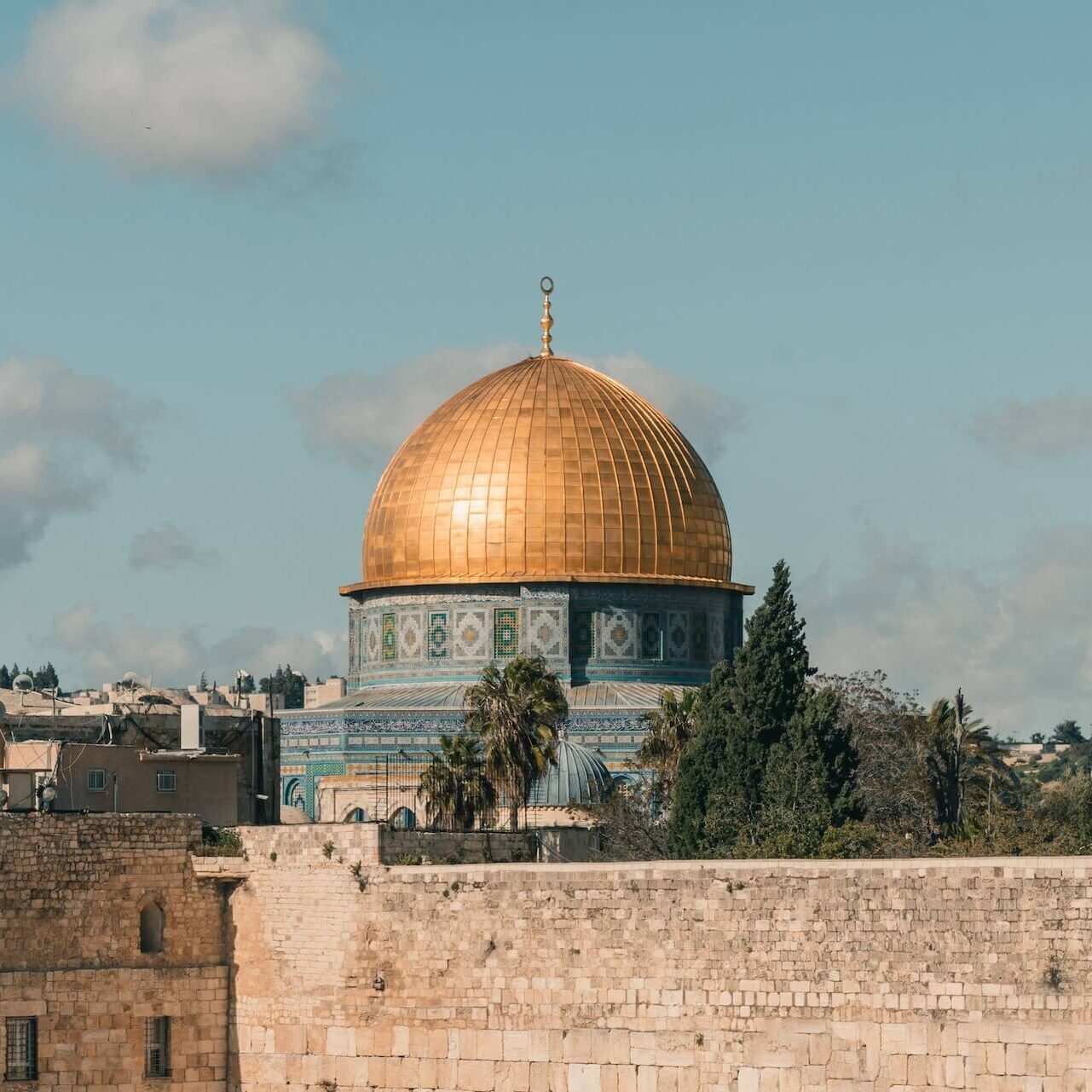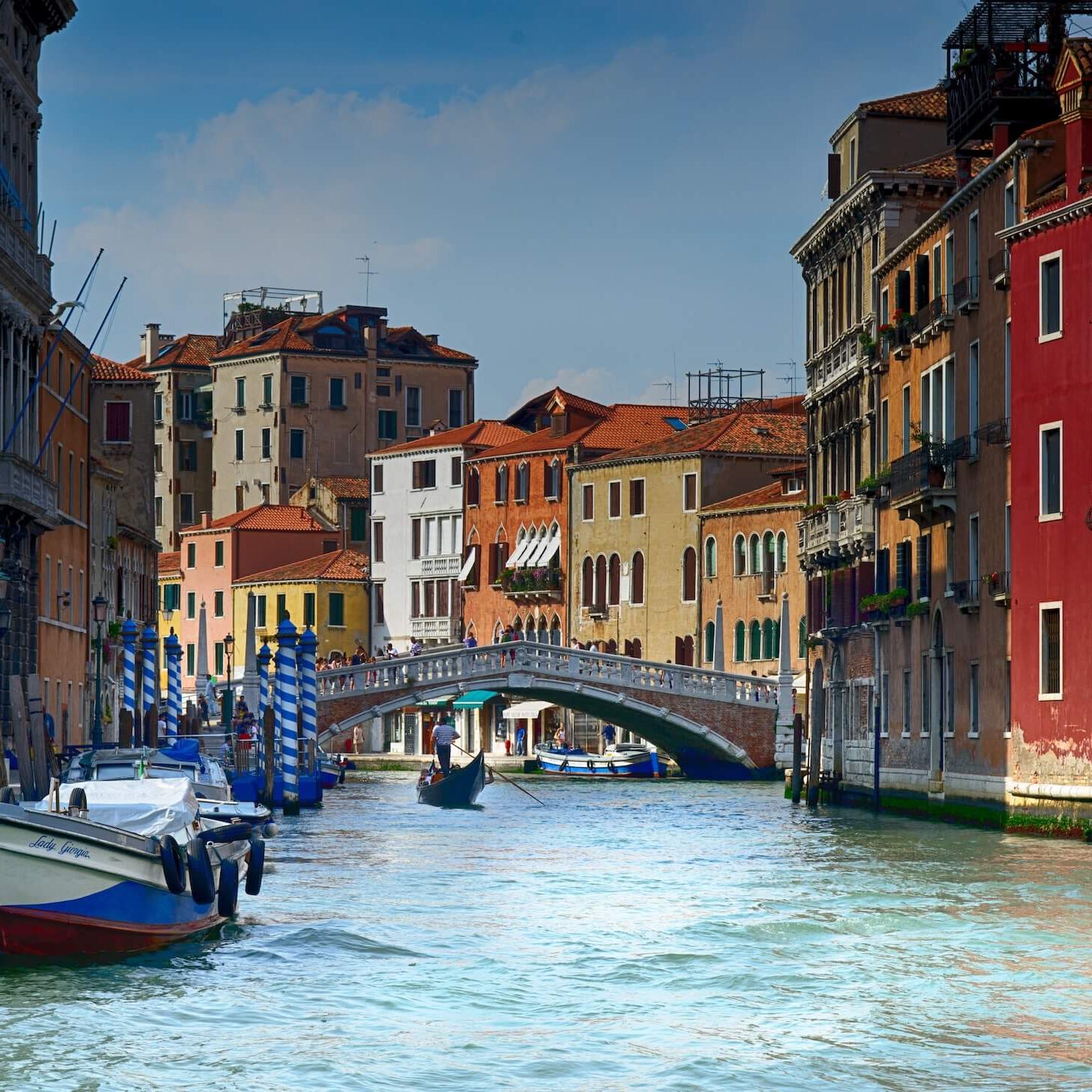Safety tends to be one of the first questions for travelers to Israel. At the end of their tour, however, many of our groups have commented that they felt much safer in Israel than they even do in their own home country.
imagine Tours & Travel would never encourage any tourists to visit Israel if we felt they would be in the slightest bit of danger. Safety is our number-one priority for all our travelers!
Israel and the Middle East tend to draw media attention for many different reasons, but while traveling in Israel most passengers realize first-hand how poorly the media portrays everyday life there. Tourism is one of Israel’s top industries, both for Arabs and Jews, and hundreds of thousands of tourists are still coming every year to visit the Holy Land!
Health Concerns
Travel insurance is highly recommended for medical coverage, baggage, and trip cancellation or interruption. We recommend Travel Guard for insurance. Please contact them directly by clicking this link or calling 1-800-826-1300 (reference agent code: 127152).
Medications should ALWAYS be packed in carry-on bags. Some basic over-the-counter medications can be purchased in country, but we recommend you bring your own if you anticipate needing them.
The tours require quite a bit of walking, so we recommend you check with your doctor to determine good physical health and try to exercise regularly before traveling. Some of the sites along the tour will be handicap accessible, however some are not. We will always do our best to accommodate those in need.
The tap water is safe to drink in Israel.
Clothing
Clothing should be chosen for comfort and packing space. There is no need to pack formal clothing while on a tour. To find out what the weather will be like while you’re traveling, we recommend www.wunderground.com. When packing, keep in mind that you will want to leave room for souvenirs. Also be aware that some “holy sites” require men to cover their head (any hat is fine) and everyone to cover their shoulders and knees. Since most trips include extensive walking and sightseeing lasts most of the day, it is a good idea to dress in layers to stay comfortable. In the winter time, you will need a heavy jacket/coat and warmer clothes – and possibly appropriate rain gear/clothing. Make sure you bring a good pair of walking shoes that are already broken-in (closed-toe recommended). If your tour includes Hezekiah’s Water Tunnels or the Dead Sea, you may also want closed water shoes.
A recommended packing list would include:
– 3-5 pairs of pants, shorts, or capris pants
– 1 shirt per day
– Undergarments (including undershirts)
– Bathing suit
– Comfortable walking shoes (already broken-in) and possibly a pair of slippers/loafers for your room and on the airplane
– Accessories (light jacket, raincoat, umbrella, sunglasses, sunscreen, and hat)
– Motion sickness medicine (Bonine or Dramamine) and Imodium for sour stomach
– Bible, notebook, and pen
– Camera, memory cards, chargers, and extra batteries
Please note: While most hotels do offer laundry services, it can be expensive. If needed, please discuss directly with your guide for alternative laundry options.
Toiletries
Liquids are only allowed in small quantities in your carry-on bag, so it is recommended to pack most toiletries in your checked luggage. As you pack, save space by bringing travel sized products. Liquids have a tendency to expand at high altitudes. In your checked luggage, it is best to pack liquids in screw-top bottles and store them in plastic bags in case they spill. These bags will be useful later when packing wet bathing suits, washcloths, or dirty shoes. You may also wish to pack a few travel packets of laundry detergent. Some hotels abroad do not furnish washcloths or facial soap. If these are desired, please be sure to bring your own.
Electrical Items
An adapter (which changes the shape of the plug) and/or a converter (to change the electric current) are necessary if you plan to use an electric appliance in a foreign country. Israel uses 220 volts AC (instead of the 120 used in the United States), single phase, 50 Hertz. Most of the hotels have hair dryers and 110/220 electric shaver sockets (will take shavers from either voltage). Some chargers for cell phones, computers, iPads, and cameras only require a small adapter, while other small appliances such as flat irons, hair dryers, etc. may require a converter as well as an adapter (you may want to verify this on your individual devices). Universal adapters and converters can be purchased at most retail stores selling electronics. For more information, please click here.
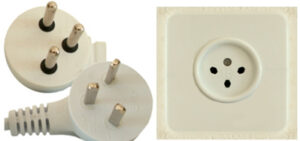
Most Israel sockets accept both shapes.
Medicines
We highly recommend that you take ALL medicines needed during your trip with you in a carry-on bag. DO NOT put medicines in your checked luggage. In the event your luggage is delayed or lost, you will not have access to your medicine when needed.
Cell Phones
There are places to buy prepaid phone cards in Israel, or you may check with your cell phone provider for international plans before traveling. It is advised to set your phone to “airplane mode” when leaving your country until you arrive back in your country so you will not receive any unexpected charges on your phone while abroad. You do have the option to set your phone on “wifi” while still on airplane mode in Israel, and you can use the wifi on most buses and in the hotels.
Money
Most shops and restaurants accept US dollars, and you may want to bring small bills for this. If you choose to exchange your cash into shekels, please check this link http://www.xe.com for the updated conversion rate to Israel’s NIS (New Israeli Shekel) currency. There are ATMs in country, but it’s not always convenient to find one depending where you are touring each day. You should notify your bank before traveling that you will be abroad to help avoid your credit or debit card being suspended.
Baggage
Luggage is limited to one large suitcase per person, a carry-on bag that fits in the overhead compartment, and a personal bag that fits under the seat. Check with your airline directly for size and weight limits (usually not to exceed 40-50 lbs. for large suitcase), as airlines restrictions may vary. You may be charged a large fee for any extra weight or size.
Be prepared for security checks for all of your luggage at the airport. Since luggage could be misplaced or delayed by airlines, it is always recommended to pack essential items of clothing and hygiene for 1-2 days in your carry-on. It is also a good idea to pack some light snacks for the plane ride, although some will be provided on board.
Visas & Passports
Upon entering Israel, you must have a passport that is valid for at least 6 months after the date of your scheduled return home. We recommend that you keep a photocopy of your passport in your purse or wallet. A visa is not required for US or Canadian citizens traveling to Israel. You will receive a 90 day tourist visa (FREE) at the Israel airport. Citizens of other countries must check your government travel websites for requirements. If you are continuing to Jordan or Egypt as part of your group tour, and you are a US or Canadian citizen, imagine can secure your group visa for you.
Passport Control
You can request that your passport not be stamped upon arrival in Israel. These days, most passports are not stamped and a slip of paper is stamped instead and given to you to keep in your passport until your day of departure, when you will need your stamped paper again to leave the country. Please be sure to keep it safely tucked away in your passport throughout your entire time in Israel as you will need it to exit the country.
Proceed to collect your bags in the baggage claim and exit to the Arrivals Hall where a representative with imagine Tours & Travel will be waiting with a designated sign (if beginning your tour with imagine Tours & Travel at the airport).
Shabbat
Shabbat or the Sabbath (day of rest) is the holiest day of the week in Israel. It begins at sundown every Friday evening and ends at sundown every Saturday evening. In most cities throughout the country, many buses, restaurants, stores, sites, etc. close for Shabbat. It is very peaceful and calm, yet can also be difficult for tourists on their own who might want to get out on Friday night or Saturday and explore. However, depending on the city, there are still certain sites and places that are open on Shabbat.
Israel Holidays
For a list of Israel’s holidays and dates, please click here.
Facilities/restrooms
Most of the sites and places in Israel are very westernized and clean, including the restrooms. You may still want to carry a small pack of tissue or wipes along with you, just in case.
Food
The food is usually one of the top things that tourists enjoy about Israel! Be sure to try the hummus, falafels, shawarmas, and the fresh pita, of course. Israel is known for some of the freshest vegetables and fruits of any country in the world. Special meals, for health reasons, may be available upon request. Be sure to notify our office of any dietary needs before you travel.
Languages
Hebrew is the main language of Israel, however English and Arabic are also widely spoken. Most places throughout the country, including the airport and major roads, all have signs written in all 3 languages. It is very easy to communicate with people in English as the majority speak it in Israel, even if as a second language.
